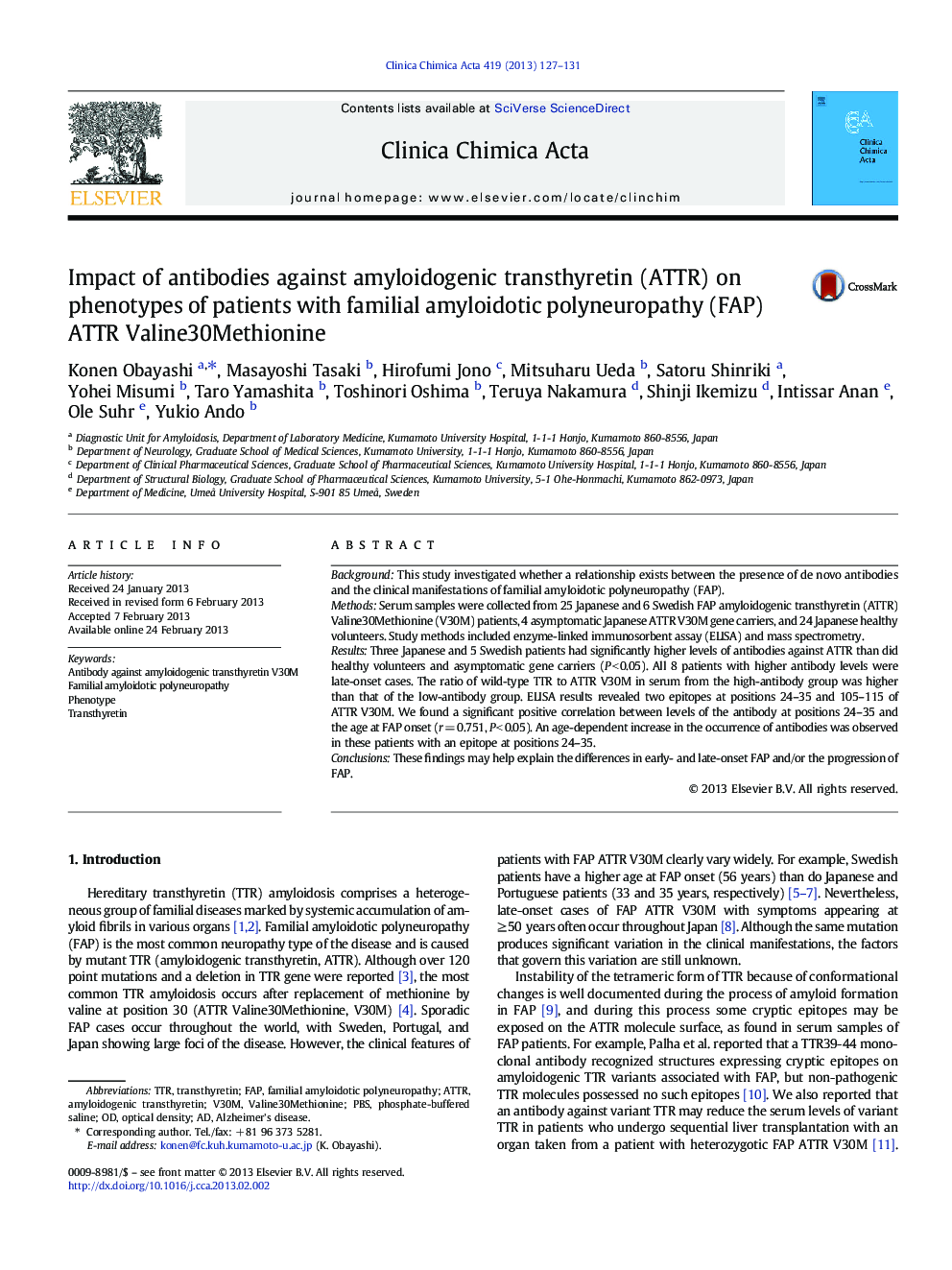| Article ID | Journal | Published Year | Pages | File Type |
|---|---|---|---|---|
| 1965615 | Clinica Chimica Acta | 2013 | 5 Pages |
BackgroundThis study investigated whether a relationship exists between the presence of de novo antibodies and the clinical manifestations of familial amyloidotic polyneuropathy (FAP).MethodsSerum samples were collected from 25 Japanese and 6 Swedish FAP amyloidogenic transthyretin (ATTR) Valine30Methionine (V30M) patients, 4 asymptomatic Japanese ATTR V30M gene carriers, and 24 Japanese healthy volunteers. Study methods included enzyme-linked immunosorbent assay (ELISA) and mass spectrometry.ResultsThree Japanese and 5 Swedish patients had significantly higher levels of antibodies against ATTR than did healthy volunteers and asymptomatic gene carriers (P < 0.05). All 8 patients with higher antibody levels were late-onset cases. The ratio of wild-type TTR to ATTR V30M in serum from the high-antibody group was higher than that of the low-antibody group. ELISA results revealed two epitopes at positions 24–35 and 105–115 of ATTR V30M. We found a significant positive correlation between levels of the antibody at positions 24–35 and the age at FAP onset (r = 0.751, P < 0.05). An age-dependent increase in the occurrence of antibodies was observed in these patients with an epitope at positions 24–35.ConclusionsThese findings may help explain the differences in early- and late-onset FAP and/or the progression of FAP.
► A de novo antibody against ATTR V30M correlates with the onset age of FAP. ► Age-dependent increase of the antibody was also observed in FAP patients. ► These results may explain early- and late-onset and/or the progression of FAP.
